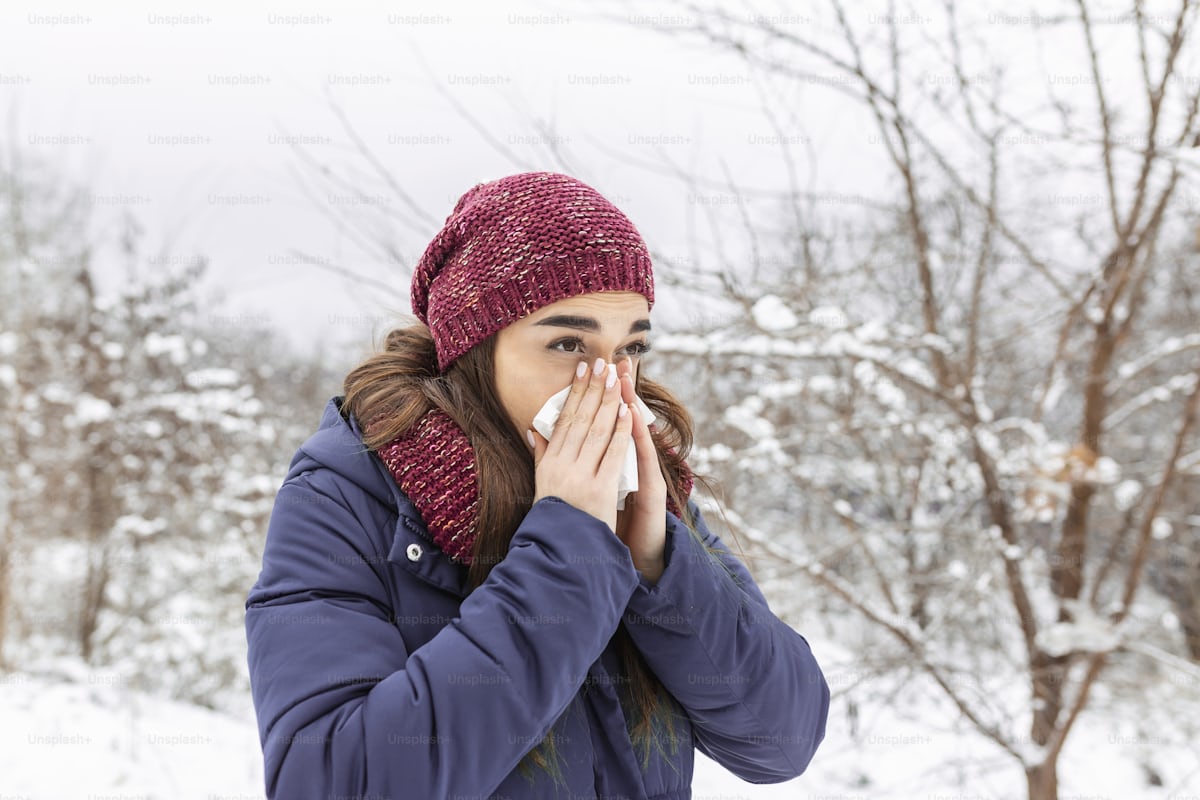When we think of allergies, we think of spring and summer, when flowers and pollen cause misery for millions of people. However, winter allergies are a real problem that is often unavoidable and can lead to chronic coughs – many colds, flu, or other respiratory symptoms. Understanding the relationship between winter allergies and severe cough can help individuals manage their symptoms and improve their quality of life.
What is winter allergy?
Common triggers include dust mites, pet dander, mold spores, and cockroach droppings. Unlike seasonal allergies caused by pollen, winter allergies can last throughout the season. They are especially annoying in homes that do not have proper ventilation or in damp areas that help mold grow.

Chronic cough
Common symptoms: Chronic cough in adults lasts for eight weeks or more and is very annoying. It’s often associated with infection, smoking, asthma, or GERD, but allergies can also play an important role.
During an allergic reaction, the body’s immune system releases histamine, which causes inflammation of the nose and throat. Postnasal drip – a condition in which excess mucus drips down the back of the throat – is frequently found. This mucus triggers the cough reflex, causing a persistent cough as long as exposure to the allergen continues.
Why winter allergies are confused
Winter allergies are often called respiratory infections or chronic bronchitis because the symptoms overlap. In both cases, nasal congestion, sneezing, and coughing are common, but there are key differences. Unlike infections, allergies do not cause fever or body aches.

In addition, allergic cough is worsened by exposure to allergens such as dust or pet dander and improves when these triggers are removed. Misdiagnosis can delay appropriate treatment, allowing individuals to deal with a persistent cough that interferes with sleep, work, and daily activities.
Controlling winter allergies and chronic coughs
The key to reducing chronic coughs resulting from winter allergies is identifying allergens and reducing exposure to them. Here are some effective strategies.
Improve indoor air quality: Use air purifiers with HEPA filters to trap allergens and maintain ventilation.
Regular cleaning: Vacuum carpets, wash bedding in hot water, and vacuum frequently to reduce allergen build-up.
Humidity Control: Maintain indoor humidity levels between 30-50 to prevent mold growth and the spread of dust mites.
Allergy medications: Over-the counter antihistamines, Congestants, or Nasal spray can relieve symptoms. Consult your health care provider for persistent cases.

When to seek medical help: If a chronic cough persists despite these measures, it is important to contact a healthcare professional. Allergy testing can identify specific triggers, and treatments such as immunotherapy (allergy shots) can provide long-term relief.
Understanding the link between winter allergies and a severe cough can allow individuals to take proactive steps to manage their symptoms. By identifying the triggers and implementing preventive measures, it is possible to breathe easily and enjoy the cold months without the constant irritation caused by a constant cough.
Reference https://www.templehealth.org/about/blog/allergies-vs-chronic-cough#:~:text=It%20can%20occur%20in%20people,clear%20their%20throat%20a%20lot.https://www.allergyaffiliates.com/blog/is-your-chronic-cough-linked-to-unseen-allergies
https://delsym.com/blogs/resources/the-difference-between-an-allergy-cough-and-a-cold-or-flu-dry-cough
https://www.healthline.com/health/cough-that-wont-go-away
https://www.verywellhealth.com/constant-cough-symptoms-2248845
https://www.aaaai.org/tools-for-the-public/conditions-library/asthma/what-is-chronic-cough-syndrome
https://www.zyrtec.com/allergy-guide/understanding-allergies/symptoms/allergies-or-cold
 using WordPress and
using WordPress and
Comments are closed